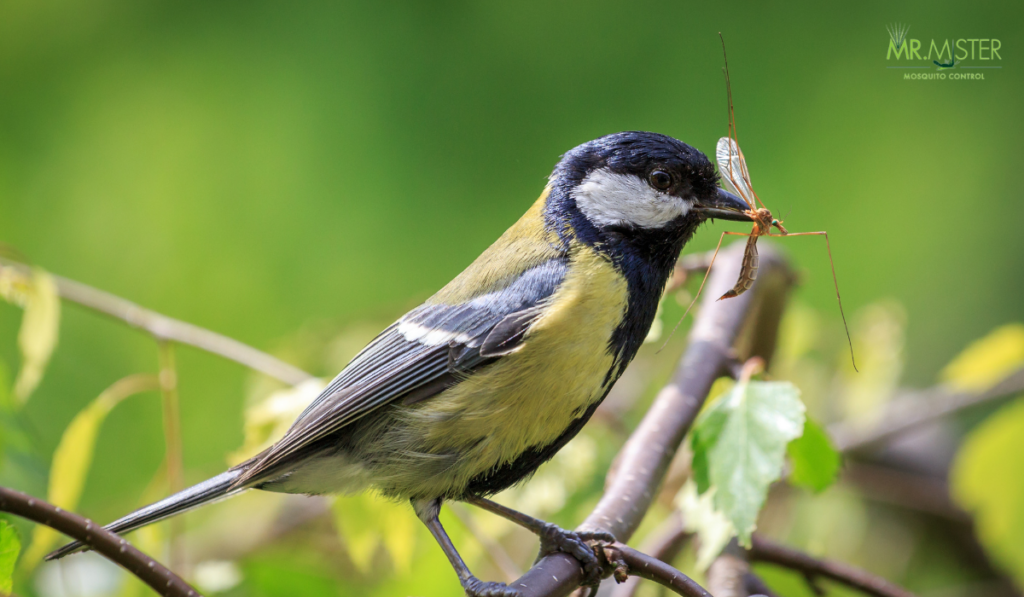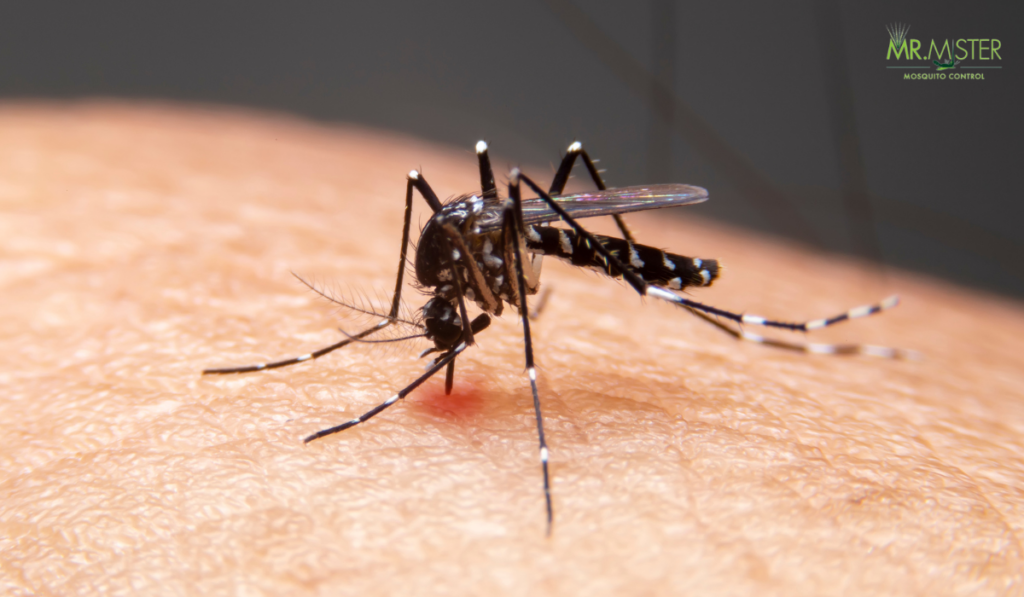Best Birds for Mosquito Control: Natural Pest Control
When it comes to combating mosquitoes, nature has provided us with some incredible allies: birds. Certain bird species have developed a taste for mosquitoes and can help control their populations naturally. In this article, we will explore some of the best birds for mosquito control, highlighting their unique characteristics and how they contribute to natural pest control.
How Birds Can Help Keep Mosquito Population Under Control?
Birds play a crucial role in controlling mosquito populations naturally. Their feeding habits make them efficient predators of these pesky insects. By incorporating birds into your pest control strategy, you can significantly reduce the number of mosquitoes in your area.
Types Of Birds That Eat Mosquitoes
Several bird species are known to feed on mosquitoes. Here are some types of birds that include mosquitoes in their diet:
Purple Martins – The Mosquito Slayer
Purple Martins are renowned for their exceptional mosquito-hunting abilities. These migratory birds consume large quantities of mosquitoes, making them highly effective in controlling mosquito populations. Installing purple martin houses can attract these beneficial birds to your property.
Swallows – Aerial Mosquito Hunters
Swallows are skilled aerial acrobats that feed on insects, including mosquitoes, while in flight. Their agility and speed enable them to catch mosquitoes on the wing effortlessly. Providing nesting sites, such as birdhouses or barns, can attract swallows to your surroundings.
Nighthawks And Nightjars – Mosquito Eaters Of The Night
Nighthawks and nightjars are nocturnal birds that primarily hunt at dusk and dawn. They have a particular fondness for mosquitoes and other flying insects. Encouraging natural habitats with suitable roosting areas, such as open fields or wooded areas, can attract these mosquito-eating birds.
Chickadees And Titmice – Tiny Mosquito Predators
Although small in size, chickadees and titmice are voracious insect-eaters, including mosquitoes. They actively search for insects in trees and shrubs, making them valuable allies in mosquito control. Providing bird feeders and nest boxes can attract these beneficial birds to your yard.
How To Attract Mosquito-Eating Birds To Your Yard?
To attract mosquito-eating birds to your yard, create an environment that meets their needs. Provide birdhouses, nesting sites, and appropriate food sources like insects, fruits, or seeds. Ensure there is access to fresh water for drinking and bathing. Avoid using chemical pesticides, as they can harm the birds and their food sources.
Get Rid Of Mosquitoes The Natural Way!
Mosquitoes can be not only annoying but also carriers of diseases. Instead of relying solely on chemical pesticides or repellents, consider natural methods to control these buzzing pests. By harnessing the power of birds and creating a bird-friendly environment, you can combat mosquitoes effectively while maintaining the ecological balance.
FAQs:
Here are some frequently asked questions (FAQs) related to birds and their role in controlling mosquito population
What kind of bird eats the most mosquitoes?
Purple Martins are known for their insatiable appetite for mosquitoes and are considered one of the birds that eat the most of these pests.
Will birds keep mosquitoes away?
While birds can significantly reduce mosquito populations, they may not entirely keep mosquitoes away. However, their presence and feeding habits can help control mosquito numbers naturally.
Do bats or purple martins eat more mosquitoes?
Purple Martins have a higher mosquito consumption rate compared to bats. They are renowned mosquito eaters and can consume substantial quantities of mosquitoes during their feeding flights.
What animal kills the most mosquitoes?
Among animals, birds, particularly Purple Martins, are known to kill the most mosquitoes due to their high feeding rates and mosquito-specific diets.
Do hummingbirds control mosquitoes?
Hummingbirds primarily feed on nectar and insects like gnats and small spiders, but they are not significant mosquito predators. They are attracted to flowers rather than mosquitoes.
What do mosquitoes hate the most?
Mosquitoes are repelled by certain scents, such as citronella, lavender, and eucalyptus. Additionally, they dislike cooler temperatures, strong breezes, and bright lights.
How do farmers keep mosquitoes away?
Farmers employ various methods to keep mosquitoes away from their crops and livestock. These methods include eliminating standing water where mosquitoes breed, using biological controls like mosquito-eating fish in water bodies, and implementing integrated pest management techniques to reduce mosquito populations.
What kills mosquitoes the best naturally?
Several natural methods can effectively kill mosquitoes. These include using mosquito larvae-eating fish in ponds or water bodies, planting mosquito-repellent plants like citronella or lemongrass, using essential oils like tea tree oil or neem oil as natural repellents, and employing traps or bug zappers specifically designed to attract and kill mosquitoes.
What is the natural enemy of mosquitoes?
Mosquitoes have numerous natural enemies that help control their populations. Dragonflies and damselflies are voracious predators of mosquitoes, both in their aquatic larval stage and as adults. Additionally, birds like Purple Martins, swallows, and nighthawks feed on mosquitoes, while bats also consume large quantities of these pests.
What chases mosquitoes away?
Certain natural deterrents can help chase mosquitoes away. Burning citronella candles or using citronella oil in diffusers can create an environment that mosquitoes find unfavorable. Additionally, installing fans or creating a breeze can make it challenging for mosquitoes to fly, reducing their presence.
How do you attract purple martin birds?
To attract Purple Martins, you can provide suitable housing in the form of multi-compartment birdhouses specifically designed for them. You should place the houses in open areas, keeping a distance of at least 30 feet from trees and buildings. Mount them on poles or specialized martin house systems. Offering supplemental food sources like mealworms or crickets can also attract these birds.
What purple bird eats mosquitoes?
The Purple Martin is a bird species that feeds on mosquitoes as part of its diet. They are highly beneficial in controlling mosquito populations due to their voracious appetite for these pests.
What farm birds eat mosquitoes?
Several farm birds have a diet that includes mosquitoes. Chickens, guinea fowl, ducks, and geese are known to eat mosquitoes and other insects found in agricultural settings. Encouraging the presence of these birds on farms can contribute to natural mosquito control.
Do chickens control mosquitoes?
Yes, chickens can contribute to mosquito control on farms. They actively forage for insects, including mosquitoes, in grassy areas. Chickens can help reduce mosquito populations by consuming the insects and their larvae.
Do yellow finches eat mosquitoes?
Yellow finches primarily feed on seeds and do not have a significant reputation as mosquito predators. Their diet consists of plant material, such as flowers, buds, and seeds.
Do common grackles eat mosquitoes?
Common grackles are omnivorous birds that consume a variety of food, including insects. While they may occasionally eat mosquitoes, their diet consists of a wide range of insects, fruits, and seeds.
What eats blind mosquitoes?
Several aquatic animals, such as fish, frogs, and insect larvae-eating insects like dragonflies, prey on blind mosquitoes. Additionally, birds like swallows and Purple Martins feed on blind mosquitoes when they emerge in large swarms.
How do I get rid of blind mosquitoes in my yard?
To reduce the presence of blind mosquitoes in your yard, it is important to eliminate their breeding sites. Blind mosquitoes breed in stagnant water, so removing or treating standing water sources like birdbaths, flowerpot saucers, or clogged gutters can help. Additionally, using mosquito dunks or introducing mosquito-eating fish in water bodies can control their population.
In regions like Florida, where mosquitoes are prevalent, attracting mosquito-eating birds can be especially beneficial. By offering suitable nesting sites, providing a water source, and planting native vegetation that attracts insects, you can create an attractive habitat for these birds.
Birds play a significant role in controlling the mosquito population in Missouri as well. Species like Purple Martins, swallows, and chickadees actively target mosquitoes and can help keep their numbers in check. By creating the right environment, including open spaces, nesting sites, and a diverse range of insects for food, you can attract these mosquito-eating birds to your area.
While birds like sparrows primarily feed on seeds, they may consume mosquitoes opportunistically but are not considered major mosquito predators. It is the specialized mosquito-eating birds like Purple Martins and swallows that have a substantial impact on mosquito populations.
When it comes to attracting birds that eat mosquitoes, providing suitable birdhouses or nest boxes is crucial. To design these structures for the target species, such as Purple Martins, and to place them in open areas away from trees and buildings. Offering food sources like mealworms or crickets can also help attract and sustain these beneficial birds.
In addition to their mosquito-eating habits, birds have a broader impact on mosquito populations. By preying on adult mosquitoes, as well as their larvae and pupae in water bodies, birds contribute to reducing the overall mosquito population and limiting their breeding success.
Contrary to popular belief, hummingbirds primarily feed on nectar and small insects like gnats and spiders, rather than mosquitoes. While they may consume an occasional mosquito, they are not significant mosquito predators.
Considering the diverse range of birds that eat mosquitoes, selecting the best bird for mosquito control depends on factors such as the region, nesting opportunities, and available food sources. By researching the local bird species and their mosquito-eating habits, you can identify the most suitable birds for mosquito control in your area.
In conclusion, attracting and supporting mosquito-eating birds through birdhouses, providing a conducive environment, and understanding their feeding habits can be an effective and environmentally friendly method of mosquito control. By harnessing the power of these natural predators, you can create a harmonious balance in your ecosystem while enjoying a mosquito-free environment.
* Schedule a Free Mosquito Control Consultation – 404-941-0720 *
* Guaranteed Results * 100% Biodegradable * Locally Owned







